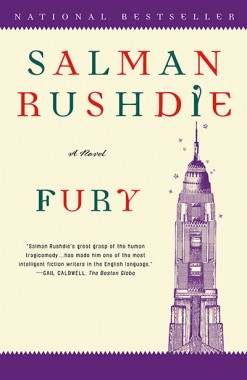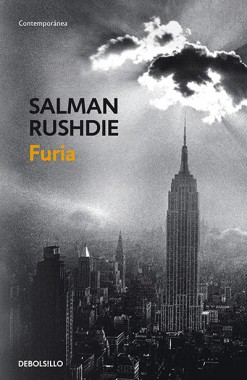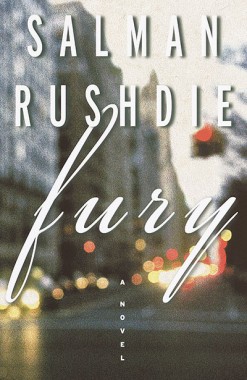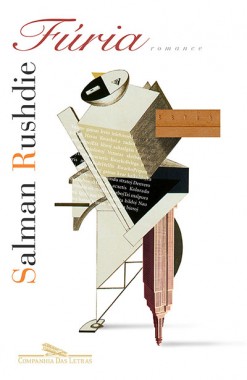Malik Solanka, historian of ideas and world-famous dollmaker, steps out of his life one day, abandons his family in London without a word of explanation, and flees for New York. There’s a fury within him, and he fears he has become dangerous to those he loves. He arrives in New York at a time of unprecedented plenty, in the highest hour of America’s wealth and power, seeking to “erase” himself.
But fury is all around him. An astonishing work of explosive energy, Fury is by turns a pitiless and pitch-black comedy, a love story of mesmerizing force, and a disturbing inquiry into the darkest side of human nature.
Praise
A New York Times Notable Book
“Salman Rushdie’s great grasp of the human tragicomedy–its dimensions, its absurdities and horrors–has made him one of the most intelligent fiction writers in the English language.” –Gail Caldwell, The Boston Globe
“Fury is a profoundly, ecstatically affirmative work of fiction. It reaffirms Rushdie’s standing . . . at the very front rank of contemporary literary novelists.” –Baltimore Sun
“Rushdie’s ideas–about society, about culture, about politics–are embedded in his stories and in the interlocking momentum with which he tells them. . . . All of Rushdie’s synthesizing energy, the way he brings together ancient myth and old story, contemporary incident and archetypal emotion, transfigures reason into a waking dream.” –Los Angeles Times Book Review
“Well, here it is, then, his first 3-D, full-volume American novel, finger-snapping, wildly stupefying, often slyly funny, red-blooded and red-toothed. [Fury] twinkles brightly in tragicomic passages.” –The Miami Herald
Buy this book
Barnes & Noble • Indiebound • Powell’s • Random House
Buy the eBook
READER’S GUIDE
1.Rushdie writes, “Life is fury. Fury–sexual, Oedipal, political, magical, brutal–drives us to our finest heights and coarsest depths.” Consider what he means by assigning all of these implications to the word. How does it play into the plot and characterizations of the novel? Why do you think he chose it as the title?
2.What do you think is the significance of the fact that Fury is set in a very specific place during a very specific, and recent, time? Consider the events Rushdie talks about, the major political and social players who surface throughout the novel, and the name brands, TV shows, and other cultural icons he mentions at regular intervals.
3.Describe Malik Solanka. How does his profession play into his personality? What is the nature of his relationships with others? How does his cultural background inform his character?
4.Discuss how humor functions in the book. Is this a satire? Does the humor render the novel more real or more surreal?
5.What sorts of religious, literary, philosophical, and/or mythical references appear throughout the book? What functions do they serve within their respective contexts?
6.What is the significance of Malik’s creation, Little Brain? He describes it as “first a doll, later a puppet, then an animated cartoon, and afterward an actress . . . a talk-show host, gymnast, ballerina, or supermodel. . . .” Is there something to be said for the process it underwent to become the final result?
7.There are many different subplots running through the novel. How do they relate to one another? How do they relate to Malik?
8.How do love and romance function in the novel? Malik encounters several women throughout the course of the book; what are their similarities? differences?




